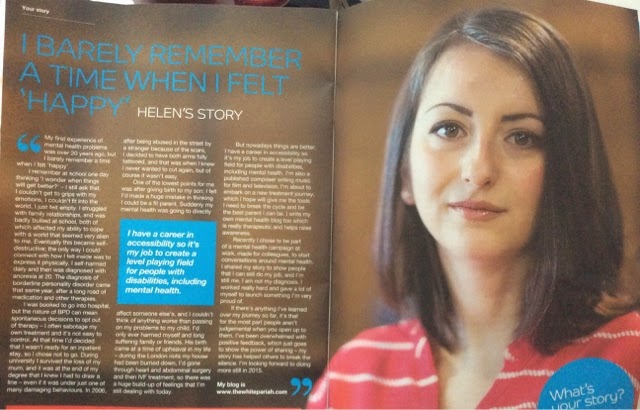I hated neon.
I regularly turn on the TV to watch coverage of a festival I once used to go to, and see people I used to know receiving the applause and adoration of a several thousand strong crowd I used to wish would clap for me. For the last few years I've had to stop watching, because it can illicit an emotional response I'm never ready for. I find it impossible to listen to new music non-judgementally (this will make more sense when I start writing about my most recent therapy); I've ruined it forever, probably.
Music for me has a direct correlation with my mental state - the more I'm listening to, the more likely I am to be slipping back into my teenage mind, and consequently revisiting every extreme corner of it. Only now I can't run away and feed these desires. Things are different now.
One of the most annoying perils of social media, for me, has to be the constant reminders that my life has turned out differently to what I'd imagined. From the early nineties Kurt Cobain obsession, the mid 2000s wearing neon and being shouty, to the highlight of hearing my own voice ringing out into the silence of 800 people in a converted chapel, I felt sure I would 'do' music. That's not to say I didn't give it a bloody good go, but as many of us poor deluded musicians do, I ended up spending more money than I ever made.
After 12 years busting my vocal chords trying to be something I wasn't, it wasn't enough. I wasn't enough. An ex-bandmate (we were a two piece) told me never to say Metallica were one of my favourite bands, because the nu-ravers wouldn't like it. That was before liking metal became ironic of course. It never looks ironic on me though - I didn't even fit in at my own shows. I hated neon.
A good (although I use that term in reference to numbers, not quality) proportion of my ex-boyfriends were, or are in bands that are living the life I'd imagined, and some are doing it despite still being 'unknown', as the industry likes to call them. If you're an ex of mine and you're reading this, then I'm probably not referring to you, because if I were, you'd be busy coiffing espresso jagerbombs and smoking in a bar in Dalston somewhere. The point is, they appear to live life from one Instagrammed moment to the next, with no normal stuff inbetween. "Here's me, looking skinny and wearing a t-shirt with some words about something only cool people will get, with one dead tooth from all the blow I've done and a Marlboro red dangling from my mouth". That kind of image once seemed attractive to me - the misguided, vulnerable, aloof yet willfully expressive twat who never knew what he wanted and was just as hellbent on self-destruction as I was.
That's exactly how it happens, see.
BPD is not dissimilar to leading a double life sometimes. There's me - ME me - and then there's me. The other me. I know this will come across as if I'm somehow trying to pin the blame on my fictional 'evil twin', but in all of these relationships, the other me did it. I shit you not, as the pope once said (something about bears, and woods, I can't really remember but it's not important).
So this other me - let's call her 'Lucy' because I wrote about 3 chapters of an autobiographical novel in 1999 in which my character was called the same - she was the one who went out looking for these relationships. She started it every time. Lucy couldn't get to grips with her feelings about anything at all, so she sought out matches who not only couldn't get to grips with their feelings either, but who fed her assumptions about herself, assumptions like 'not worthy of love' and so on. God it's such an awful cliche isn't it? And each and every time, she expected to be rejected, and so she was. And even if she wasn't, she did something to make it happen, like cheat, or fall in 'love' with someone else, or simply refuse to spend any time apart.
It's probably no surprise then that more than 3 of Lucy's choices underwent some sort of psychiatric treatment either before, during or after her relationship with them. There were a lot of tears, threats and ultimatums. There was never not alcohol. There were also copious amounts of illegal and prescription drugs on all sides. Lucy loved and lost; that's just what she did. Anything else was just a byproduct.
This then raises the question: Who are we if we are not our diagnosis? Lucy lives in our house. She's a lot quieter these days, but in the evenings she still turns the music up to an annoying volume and threatens to force me to go out with her. Whenever it's too quiet and I'm alone, she sees an opportunity to get me to do what she wants. Pretty much the only place she stays away from is work - work being my plan B, work being not music, but the corporate world that Lucy would rather die than join in with. Although I still have to mention her whenever someone asks me why I have some rather unconventional artwork on my skin. They think it's all terribly rock 'n' roll. Little do they know.

Comments